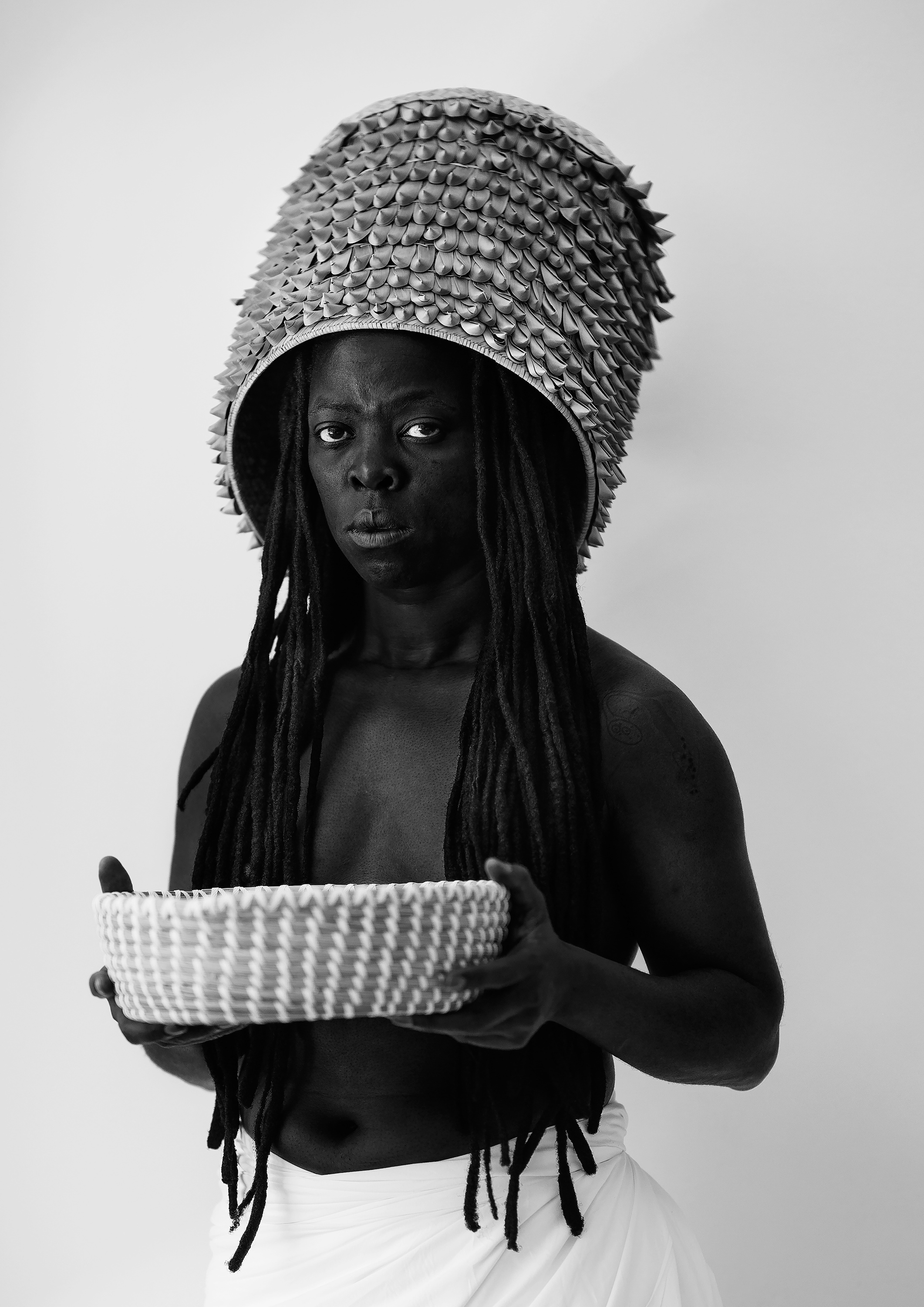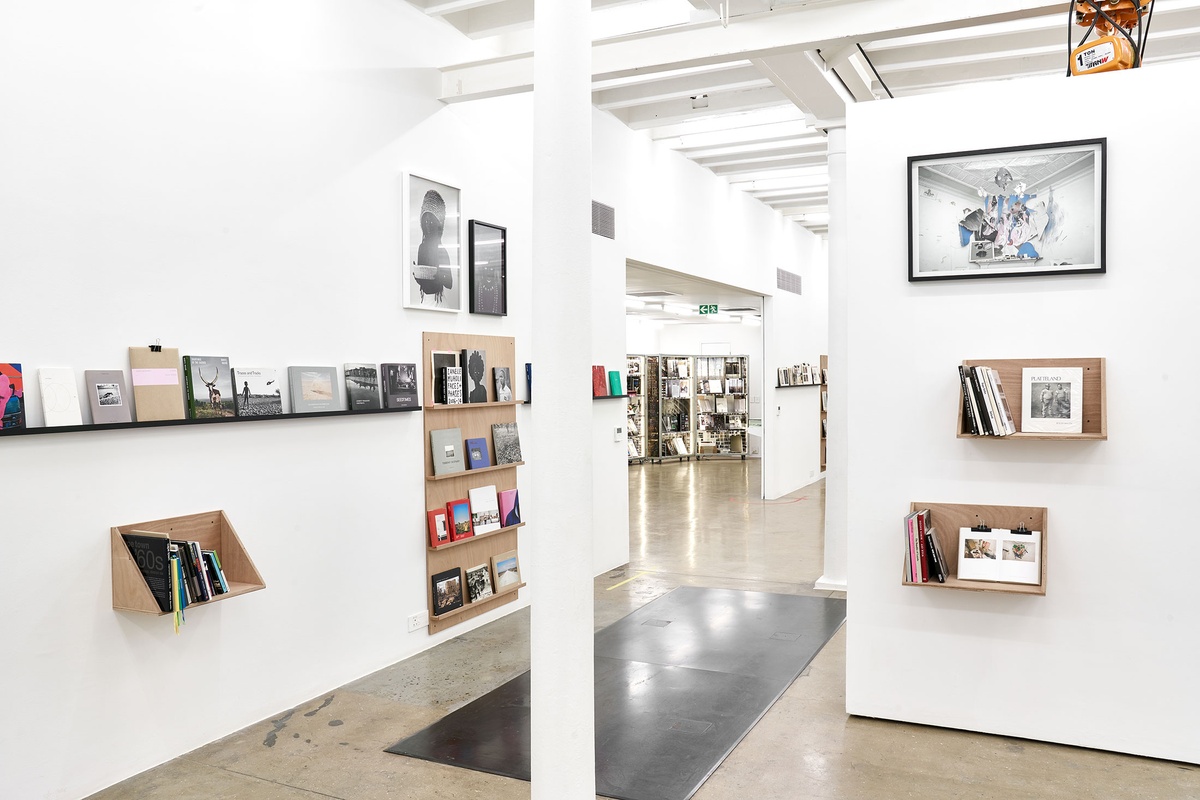Zanele Muholi

In Somnyama Ngonyama (Hail the Dark Lioness), a series of self-portraits to which this work belongs, Muholi gives themselves to be seen as subject. Each photograph is an insistence of selfhood, each a gesture of historical restitution. In referencing the conventions of ethnographic imagery, colonial photography and classical paintings, Muholi reflects not only on past politics of representation but on contemporary images of blackness. Three works from Somnyama Ngonyama appeared in the exhibition Photo book! Photo-book! Photobook! at A4: Bangizwenkosi, The Sails, Durban; Qiniso, The Sails, Durban; and Hlanzeka III, Vineyard Hotel, Room 153, Cape Town.
b.1972, Umlazi
“My practice as a visual activist,” Zanele Muholi writes, “looks at black resistance – at existence as well as insistence.” Muholi’s photographic projects address the absence in the image archive of black, queer South Africa, which is all but rendered invisible in national histories. Addressing personal experiences, contemporary politics, and social exclusions, their photographs offer an alternative representation of blackness in a country where homosexuality – while legal – is more often deemed ‘un-African’. As a result, South Africa’s black LGBTQIA community suffers not only prejudice and intolerance within their communities, but violent hate crimes. Muholi’s photographic projects respond to such prejudice and that of racism, with the archival act of documenting queer and non-gender conforming individuals in intimate portraits. It is, the activist suggests, a restorative gesture, “marking, mapping, and preserving an often invisible community for prosperity.” Muholi is perhaps best known for Faces and Phases (2006–2011), a series of over two hundred black-and-white photographs of lesbian women – women who exist and persist in a society hostile to their very presence.
